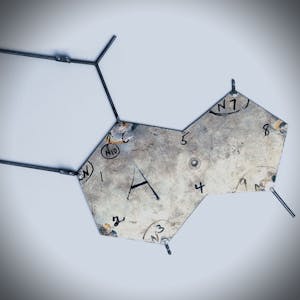Embark on a journey through the pivotal papers that laid the foundations of molecular genetics with the course "Classical papers in molecular genetics." Delve into the historical context and personal stories behind these scientific landmarks, gaining insight into the scientific process and the philosophy of scientific discovery.
Throughout the course, you will explore a curated selection of classic papers, unraveling the astute genetic experiments and biochemical results that shaped our understanding of DNA, genes, mutations, gene expression, and regulatory mechanisms. Engage with the original articles that introduced fundamental concepts, shedding light on the integration of new ideas and the mental development of creative science.
With a focus on the personal histories of the authors and their enduring contributions, this course goes beyond the scientific papers themselves, offering a comprehensive understanding of the scientific process and the philosophy underlying groundbreaking discoveries.
Join this enriching journey to expand your knowledge of molecular genetics and gain a deeper appreciation for the historical context of scientific breakthroughs.
Certificate Available ✔
Get Started / More Info
Embark on a comprehensive exploration of classic papers in molecular genetics through 12 engaging modules. Gain insight into landmark scientific articles and their historical context, fostering a deeper understanding of genetic principles and scientific discovery.
Explore the historical context and personal stories behind the scientific landmarks. Gain insight into the scientific process and the philosophy of scientific discovery.
Delve into astute genetic experiments and biochemical results that shaped our understanding of DNA, genes, mutations, and gene expression.
Unravel the original articles that introduced fundamental concepts, shedding light on the integration of new ideas and the mental development of creative science.
Engage with landmark scientific articles to understand DNA structure, replication fidelity, and gene fine structure.
Explore topography and gene fine structure, gaining a deeper understanding of genetic principles.
Gain insight into the genetic code and the sequence of the end of rIIA and the beginning of rIIB, unraveling the intricacies of molecular genetics.
Delve into the concept of nonsense mutations, shedding light on their significance in molecular genetics.
Explore T4 conditional mutants and phage assembly, gaining a comprehensive understanding of genetic mechanisms.
Uncover the principles of recombination and Hfr matings, gaining insight into genetic processes and their implications.
Engage with the lactose operon, gaining a deeper understanding of gene regulation and operon concepts.
Explore the cro gene of phage lambda and gain insight into its significance in molecular genetics.
Delve into the arabinose system and positive control, unraveling the complexities of genetic regulation and control mechanisms.
Fundamentals of Immunology equips students with a comprehensive understanding of immunology, covering innate and adaptive immunity, immune response coordination,...
Immunology: Autoimmunity, Allergy, and Transplants provides a comprehensive exploration of autoimmune diseases, allergies, and transplant rejection, delving into...
Medical Terminology II is a comprehensive course covering advanced medical terminology related to the endocrine, blood and lymphatic, cardiovascular, and respiratory...
The Little Stuff: Energy, Cells, and Genetics is a comprehensive exploration of molecular biology, covering topics such as cell control, energy transfer, genetics,...